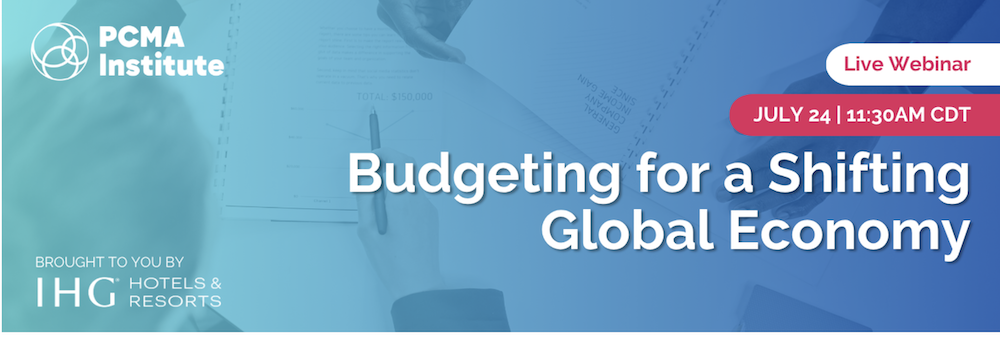

On the July 24 PCMA Institute webinar, “Budgeting for a Shifting Global Economy,” the challenge of attracting international registrants to events in the current geopolitical environment came up several times. One of the panelists, Jerry Murphy, senior portfolio director for Smithbucklin’s event services team, shared that one of their medical association clients experienced a 15-percent drop in international attendance at a recent event.
Jerry Murphy, senior portfolio director, Smithbucklin
Murphy urged the audience not to “overcorrect” in response to lower international attendance in the current market — “one year does not make a trend” — but to be realistic about contracts for future events and see what you can pause “until we get a better idea of what the new normal is.”
In the meantime, fellow webinar panelist Bill Reed, chief strategy officer for the American Society of Hematology (ASH), had this advice for event organizers facing lower international attendance: Don’t group all international attendees in the same one-size-fits-all category.
It’s easier, he noted, for someone to come to the United States for an event from one of those 39 countries that participate in a visa waiver program compared to those who need a visa. “Right now, there are two different customer sets and you want to think about them differently rather than putting them all in the same bucket. So you may want to think about if you’re losing attendance from non-visa waiver program countries, the best way [around that] is to have campaigns to build your attendance from places like Europe or Canada where a visa is not required,” he said.
As far as those countries where a visit to the U.S. requires a visa, Reed said that “visa processing time is slower now than usual. But the facts are, if people plan far enough in advance, they will get their visa in time to attend the meeting.”
Bill Reed, chief event strategy officer, American Society of Hematology
Reed said that ASH partners with the U.S. Department of State, and he advised every planner who has international participants to register their meeting with the State Department “so they know who’s coming, how many, and from what countries — we give them all that data. And then they align their resources in the consulate offices, the embassies, where they know they’re going to have an influx of our people seeking a visa.
“To do our part, we have initiated a campaign to break down the notion that someone needs to register first for the meeting before they can request their visa face-to-face appointment — that is actually the first step. And while you’re waiting for a visa appointment, you can be doing things like the registration and all of that.”
He offered a page on the ASH website as a model for other event organizers to follow, which outlines ASH’s successful campaign in helping people who require a visa to come to the United States.
“If we think of Canadians in the same way that we look at people from Thailand coming to the meeting,” Reed said, “you’re doing yourself a disservice.”
Michelle Russell is editor in chief of Convene.








